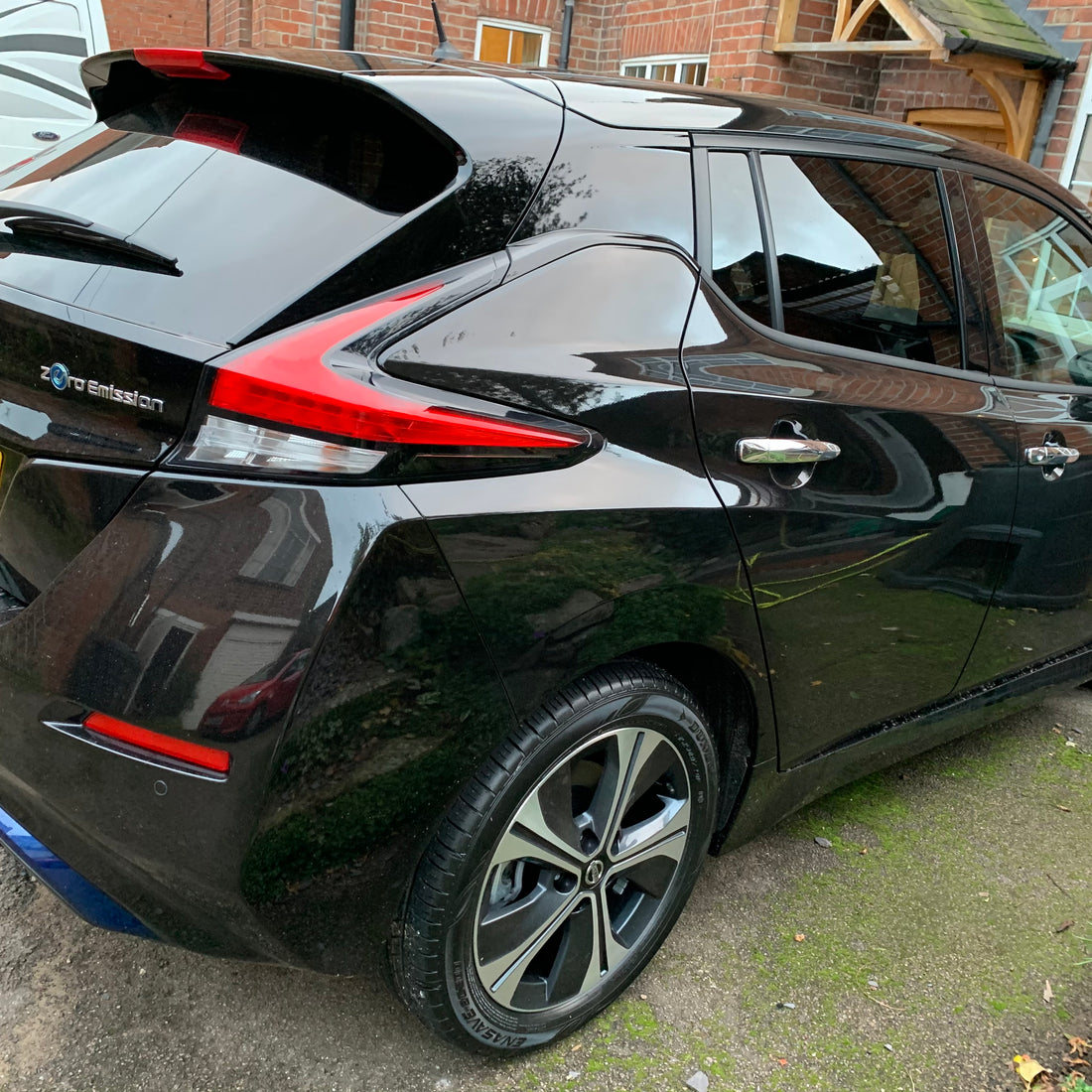
What's stopping us from going electric?
Share

Boris Johnson, this week, announced that the future for electric cars has been moved forwards to the year 2030 when there will be a ban on the sale of solely petrol or diesel powered cars.
https://www.bbc.co.uk/news/science-environment-54981425
So, what does this mean for electric cars? Are we, as car owners/drivers/purchasers prepared to move to electrically powered vehicles?
Well, unsurprisingly, I’m already a convert, a purchaser, a user of an entirely electric powered car – no hybrid for me! And, I’ve been driving this for some time now. Having read some of the articles presented this week about driving electric cars, I thought it might be helpful to offer some insights from my perspective as a seasoned electric car owner to address concerns that we all have about making the change to electric.
Is the performance compromised?
Our electric car is easily, far and away the best car that we have ever owned. It has superior everything – automation, acceleration, comfort, handling, cost to run. The technical expression is that it goes like ‘poo off a spade!’. For more than twenty years we have owned SAABs, ever since we moved to Sweden and bought our first one there. We have a history of owning quality, performance drives – and that hasn’t changed now that we are electric.
Aren’t electric cars expensive?
As our last SAAB was on it’s last legs, driven into the ground, we decided it was time to put our money where our mouth is and act upon our sustainable credentials – so we dug deep and bought electric. ‘Dug deep’ is really an appropriate expression because electric cars are far from cheap – but if you do the monthly maths, they become much more affordable. So, having calculated the fact that they cost less than £5 ‘per tank’ to re-charge, can often be charged for free at external charging points and have no road tax, suddenly our monthly payments were a whole lot more reasonable. We exchanged the £200 per month to fuel our previous diesel with a minimal amount to re-charge our electric. Now that makes a big difference!
How do you charge your car at home?
We are fortunate enough to have off-road parking. We had a charging point installed (for which there is a government grant to subsidise cost of installation). We get upwards of 230 miles per charge, so depending on what your daily mileage is, it means that you don’t need to be charging your car every day. Pre-Lockdown, we would charge our car once or twice a week perhaps. If you are lucky enough to have a charging point at work, this may then become a free charge.
How long does it take to charge?
The length of time it takes to charge depends on the capacity of your battery and the speed of the charging point. Generally, a home charging point will take about 12 hours whereas a fast charging point on a motorway will take about 45 minutes. Of course, just like a petrol or diesel car, you don’t have to wait until it’s empty to ‘refill’, and plugging the vehicle in for a top-up charge is good use of time while you are doing something else, like shopping, or sleeping overnight!
What about long journeys beyond the range of the battery?
This always seems to be a major concern and I confess that it caused me some anxiety when I first needed to travel beyond my range. However, it’s largely a change of mindset. That’s because when you’ve driven 130 miles or so, approximately 2 hours, you’re ready for a break anyway, so why not grab a cup of coffee, plug the car in and by the time you’ve supped up and been to the toilet, the car is magically ready to go! It also turns out that most of these longer journeys that we do involve motorways, and all motorway services now have superfast charging points already installed. This means that it only takes approximately 40 minutes for a fast charge and you can rest assured that there will be a charging point there. Should you be off a motorway route, there are several charging point apps that show you where the nearest charging points are across the country, and what speed of charge they are. You’ll be surprised how many places already have charging points – often retail parks, multi-storey car parks, hotels, pubs, business parks etc.
You may even find that you've made it to your destination but need to charge for the return journey, such as a visit to friends or relatives. In this situation, you simply plug into their ordinary plug socket with your own special charging cable, and 'Bob's your Uncle!' This will then be a trickle charge, so a bit slower than your normal home charging point, but will fully recharge your battery overnight.
Is it expensive to charge your car for a fast charge?
Surprisingly, no it’s not! It costs approximately £6 for a fast charge at a motorway service station. That’s less than a car load of coffee and a cake! And that’s compared to £80 of fuel – honestly, there’s no comparison!
Don’t we need to wait for more charging points to be installed before everyone buys an electric car?
Why? It is true that more cars put more demand on the available charging points but in reality, you rarely need to charge your car away from home. Just think about the journeys you ordinarily do you in your car – how many of them are local, ‘nip into town’ types of journeys? It’s only when you travel beyond the range of your vehicle that you need to re-charge in order to proceed, and really, that’s not often. When that is the case, you just need to do your homework and reassure yourself that you know where the next charging point will be. In reality, most of the time you’ll be charging your car at home as part of your normal routine and your car will always be ready to go as far as you need.
What’s not to like?
